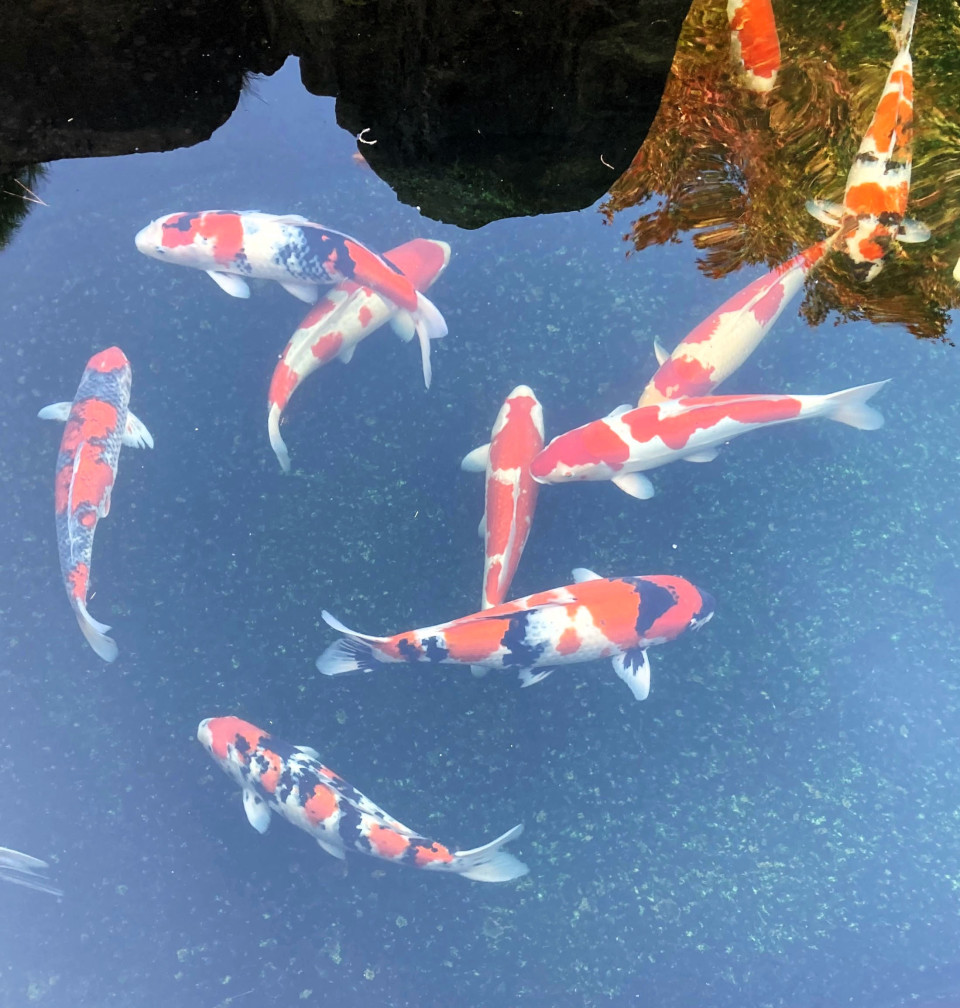Two months after China halted imports from Japan of "nishikigoi," or ornamental carp, breeders have started shipping their products to other destinations in an effort to make up for what they hope will be only the temporary loss of their biggest overseas market.
It is still not known why Beijing took such a measure. Some observers speculate it may be in response to Tokyo's decision last year to release treated radioactive water into the Pacific Ocean from the crippled Fukushima nuclear power plant, an act the International Atomic Energy Agency approved but China criticized.
The government has been pushing China to resume trade involving ornamental carp, but Beijing has yet to respond and has given no explanation of its action, according to farm ministry officials.
The All Japan Nishikigoi Promotion Association said that while breeders still hope to continue shipping the freshwater fish to China, they have no choice but to diversify export channels.
"Breeders are in a tough situation because China is a big market," said Tsutomu Senuma, secretary general of the Ojiya, Niigata Prefecture-based group of breeders and distributors.
In 2022, China accounted for 19 percent of Japan's nishikigoi exports. The United States came second with 14 percent, Indonesia third with 11 percent, and Thailand and Britain fourth equal with 7 percent each, according to government data.
Appreciated as "swimming jewels," the beautifully hued carp have drawn rising demand from abroad, with exports doubling from a decade earlier to 6.3 billion yen ($43 million) in 2022, the data show.
"We are puzzled because China has said nothing," Senuma said over the phone. "We are waiting for the resumption of exports, but we do not know Chinese authorities' thinking about the issue."

Mitsunori Isa, head of Isa Koi Farm in Ojiya, expressed regret at not being able to export his carp to China and said he is shifting his focus to growing markets in Southeast Asia -- most notably Indonesia, Vietnam and Malaysia.
Niigata is the largest nishikigoi producer in Japan, accounting for half of total shipments, with what is now Ojiya and a part of Nagaoka, a neighboring city, known as the birthplace of the fish.
"With the help of dealers, we are cultivating new markets like Cambodia and Myanmar," Isa said in a separate phone interview. "We are also increasing our dealings with India and Sri Lanka."
Isa's carp farm is one of 15 in Japan that the Chinese government had approved for direct exports to the country. Licenses for Isa and several other farms, which had been valid for three years, expired in September 2021 without Beijing renewing them, and those for remaining farms also automatically expired in March 2022.
Despite the expirations, Isa and other farms continued shipments to China via a quarantine facility in Nagaoka. But a three-year export deal China granted to the facility similarly expired Oct. 30, 2023, meaning that breeders were no longer allowed to ship their nishikigoi to China.
China's share of sales from Isa's farm was previously about 30 percent. Isa said he does not recall Chinese authorities declining to renew export permissions before.
"I would like to see an early resumption of nishikigoi exports to China," he said.
The government has been urging China to renew the licenses -- which carp farms had applied for through the Japanese Ministry of Agriculture, Forestry and Fisheries before the expiration dates -- but has received no response from Beijing, according to a ministry official.
The suspension came after the government in 2022 designated nishikigoi as a priority export item and set a goal of increasing the value of exports to 9.7 billion yen in 2025, with China and Hong Kong together to account for 2 billion yen of the total.
In a meeting in San Francisco last November, Prime Minister Fumio Kishida and Chinese President Xi Jinping agreed to promote strategic relations of mutual benefit but remained apart over Beijing's import ban on Japanese fishery products in the wake of the treated water release, a unilateral measure Tokyo sees as not being based on science.
Semuma did not comment on a rumored link between China's halt of carp imports with the ban on Japanese seafood imports, which China imposed following the start in August last year of the release of what Beijing labels "nuclear-contaminated water."
"We should not speak based on speculation," he said. "For now, it may be better that we do not overreact and provoke China. We will try to diversify export channels as we closely watch the situation in China."
Related coverage:
FEATURE: Japan's high-end medical services attract affluent Chinese tourists
FEATURE: "Snack" bar tours giving tourists a taste of after-dark Japan
FEATURE: Emergency helicopter innovations extending lifeline to those in peril
 By Ko Hirano,
By Ko Hirano,









